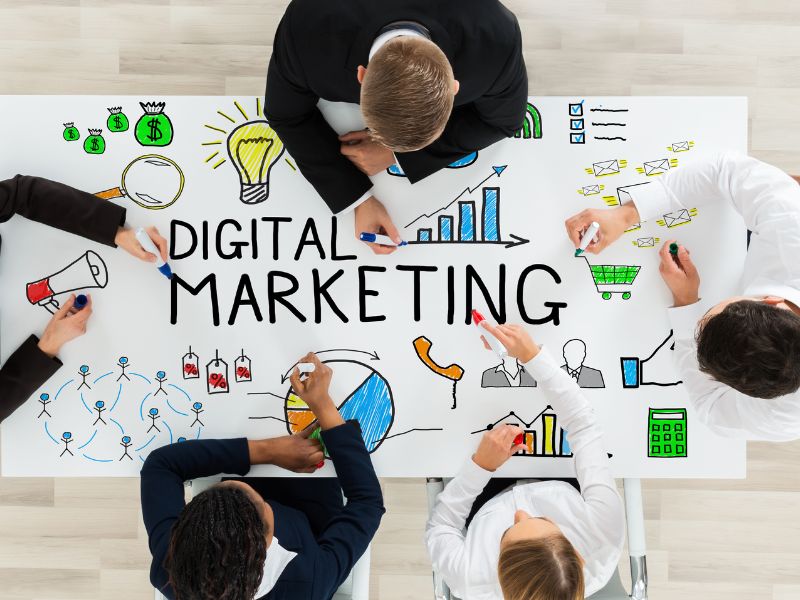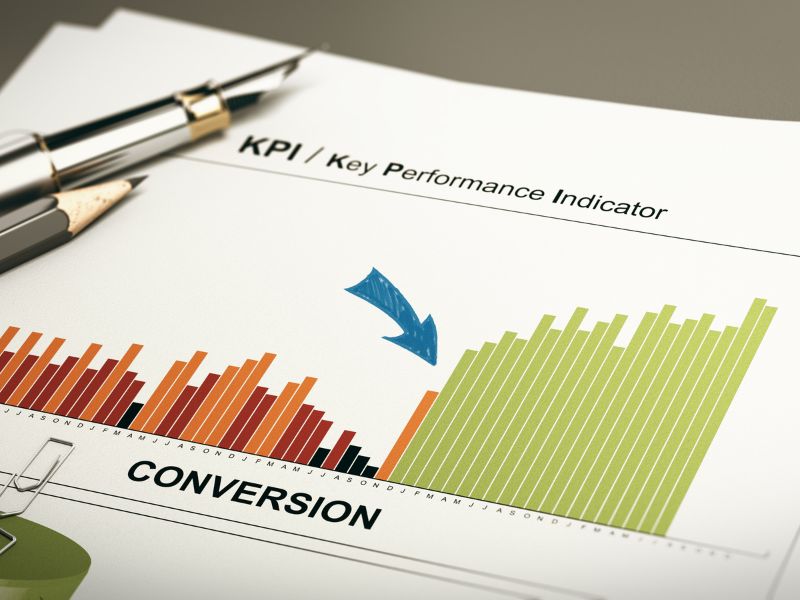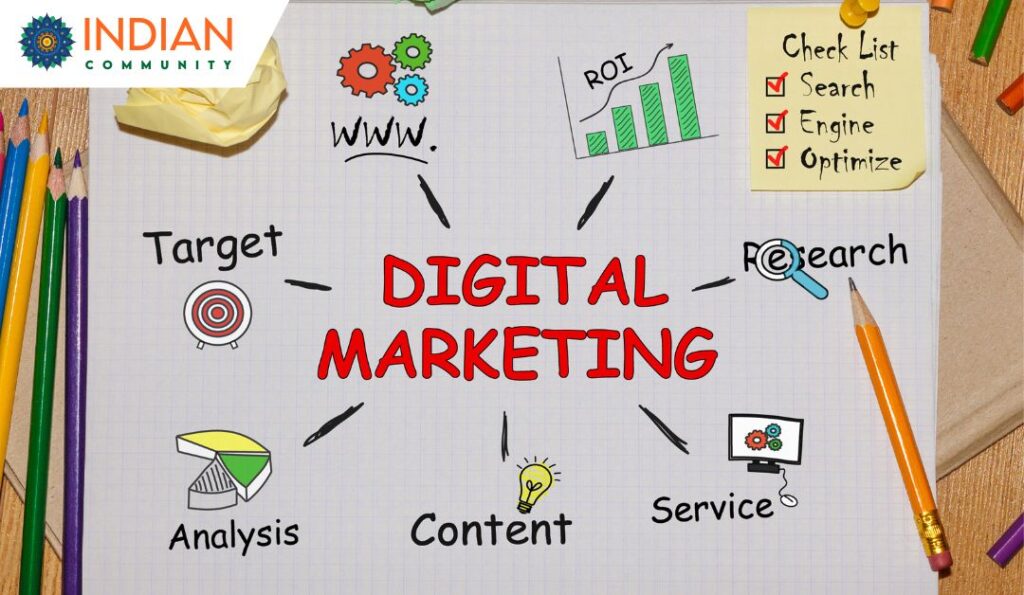In today’s increasingly digital world, businesses must have a robust online presence to remain competitive and engage with their target audience. Digital marketing services have become a key component of business growth, offering a wide range of strategies and tools to help companies connect with customers, increase brand awareness, and drive sales. This blog explores the various types of digital marketing services, their importance, and how businesses can leverage them for long-term success.
What is Digital Marketing?

Digital marketing encompasses all marketing efforts that use electronic devices or the internet. Businesses leverage digital channels such as search engines, social media, email, and websites to connect with current and prospective customers. Unlike traditional marketing, digital marketing allows businesses to engage with their audience in real-time, track performance, and refine strategies for better results.
Types of Digital Marketing Services
Digital marketing services can be divided into several key categories, each offering unique ways to reach and influence potential customers.

1. Search Engine Optimization (SEO)
SEO is the process of optimizing a website’s content to rank higher in search engine results pages (SERPs). The goal of SEO is to increase organic (non-paid) traffic to a website by making it more visible to users who are searching for relevant information, products, or services. SEO involves several techniques, including:
On-page SEO: Optimizing individual web pages with the right keywords, meta descriptions, and internal linking to improve their relevance and visibility.
Off-page SEO: Building high-quality backlinks from other websites to improve the authority and trustworthiness of your site.
Technical SEO: Enhancing the website’s backend structure, such as improving site speed, mobile-friendliness, and security (SSL certificates) to improve search engine rankings.
Why SEO Matters: SEO drives organic traffic, making it cost-effective in the long run. It builds credibility, as users tend to trust websites that appear higher in search results.
2. Pay-Per-Click (PPC) Advertising

PPC is a paid digital marketing strategy where businesses pay a fee each time their ad is clicked. Google Ads is one of the most common platforms for PPC advertising, but it can also be implemented on social media platforms like Facebook, Instagram, and LinkedIn. With PPC, advertisers can bid on keywords relevant to their products or services to ensure their ads appear at the top of search engine results.
Why PPC Matters: PPC allows businesses to target highly specific audiences based on demographics, location, and interests. It provides instant visibility and results, which can be particularly effective for promoting time-sensitive campaigns or products.

3. Content Marketing
Content marketing focuses on creating and distributing valuable, relevant, and consistent content to attract and engage a target audience. It can include blog posts, videos, infographics, podcasts, eBooks, and more. The goal is to provide useful information that solves problems or answers questions, positioning your brand as a thought leader in your industry.
Why Content Marketing Matters: Content marketing builds trust and authority, nurtures customer relationships, and boosts SEO efforts by generating more indexed pages and backlinks. Quality content can continue to generate traffic long after it’s published.

4. Social Media Marketing (SMM)
Social media marketing involves using platforms like Facebook, Instagram, Twitter, LinkedIn, and Pinterest to promote products or services. SMM focuses on creating engaging content, running paid ads, and interacting with followers to build a loyal community and drive conversions.
Why SMM Matters: Social media marketing allows businesses to connect directly with their audience, fostering relationships and driving engagement. It’s an excellent way to showcase brand personality, share user-generated content, and promote viral campaigns.

5. Email Marketing
Email marketing involves sending targeted messages to potential and current customers to nurture relationships, promote products, or share valuable content. Newsletters, promotional emails, and personalized product recommendations are common forms of email marketing.
Why Email Marketing Matters: Email marketing offers a direct line of communication to your audience. It’s highly personalized and cost-effective, with a high return on investment (ROI). Segmented email campaigns can deliver more relevant content, leading to higher open rates and conversions.

6. Influencer Marketing
Influencer marketing leverages influential individuals in a particular industry or niche to promote your brand. These influencers have a dedicated following, and by collaborating with them, brands can access their audience and build trust quickly.
Why Influencer Marketing Matters: Influencers can help amplify your brand message, especially when targeting specific demographics or niche markets. Their endorsements often feel more authentic, leading to higher engagement and trust among followers.

7. Affiliate Marketing
Affiliate marketing is a performance-based marketing strategy where businesses reward affiliates (partners or publishers) for driving traffic or sales to their website. Affiliates use their platforms—blogs, websites, or social media—to promote a company’s products or services through special tracking links.
Why Affiliate Marketing Matters: Affiliate marketing provides a cost-effective way to reach new audiences, as businesses only pay affiliates when a specific action (like a sale or lead) is completed. It’s also a low-risk way to expand brand visibility.

8. Video Marketing
Video marketing uses engaging video content to promote products or services. It can include product demos, tutorials, customer testimonials, behind-the-scenes footage, and live streaming events. Platforms like YouTube, TikTok, and Instagram are popular for video marketing.
Why Video Marketing Matters: Videos are highly engaging and shareable. They capture attention quickly and can convey complex information in a digestible format. Video marketing helps boost SEO (as videos are often prioritized in search results) and enhances social media engagement.

9. Conversion Rate Optimization (CRO)
Conversion rate optimization focuses on improving the performance of a website or landing page to increase the percentage of visitors who take a desired action—whether it’s making a purchase, signing up for a newsletter, or filling out a contact form.
Why CRO Matters: CRO helps businesses make the most of their existing traffic by optimizing user experience (UX) and conversion paths. This leads to higher revenue without needing to increase the number of visitors.
Why Digital Marketing Services Are Crucial for Business Growth
In today’s competitive market, having a strong digital presence is not optional—it’s essential. Here’s why digital marketing services are critical for business growth:
- Cost-Effectiveness
Digital marketing is more affordable than traditional marketing methods like TV, radio, or print. With options like PPC and social media ads, businesses can control their budget and get measurable results. - Measurable Results and Analytics
One of the key advantages of digital marketing is the ability to track and measure campaign performance in real-time. Platforms like Google Analytics, social media insights, and email marketing tools provide detailed data on website traffic, user behavior, and conversion rates, helping businesses refine their strategies. - Targeted Reach
Digital marketing allows businesses to reach specific audiences based on demographics, interests, location, and behavior. This targeted approach ensures that marketing efforts are focused on individuals most likely to convert, leading to higher ROI. - Brand Awareness and Trust
Consistent digital marketing efforts help increase brand visibility across multiple channels. By delivering valuable content and engaging with audiences, businesses can build trust and credibility, which is crucial for long-term success. - Level Playing Field for Businesses of All Sizes
Unlike traditional marketing, where larger companies with bigger budgets often dominate, digital marketing allows smaller businesses to compete. With the right strategy and tools, even startups can create impactful campaigns that reach a global audience.
The Future of Digital Marketing
The digital marketing landscape is constantly evolving, with new technologies and trends shaping the future. Here are some emerging trends to watch:
- Artificial Intelligence (AI) and Machine Learning
AI is transforming digital marketing by enabling predictive analytics, personalized content recommendations, and chatbots that offer customer service. Machine learning algorithms can analyze vast amounts of data to optimize marketing campaigns and improve customer experiences. - Voice Search Optimization
With the growing use of voice assistants like Siri, Alexa, and Google Assistant, businesses need to optimize their content for voice search. This includes focusing on long-tail keywords and creating conversational content that answers specific questions. - Augmented Reality (AR) and Virtual Reality (VR)
AR and VR are revolutionizing the way businesses engage with customers. These technologies offer immersive experiences, such as virtual product try-ons, interactive ads, and virtual tours, which can enhance customer engagement. - Privacy and Data Security
As consumers become more concerned about their online privacy, businesses must prioritize data security and transparency. New regulations, such as the General Data Protection Regulation (GDPR), require companies to handle customer data responsibly.
Digital marketing services are essential for any business looking to thrive in the modern marketplace. Whether through SEO, PPC, content marketing, or social media, these services offer a wide range of tools and strategies to reach and engage audiences, increase brand awareness, and drive conversions. By staying on top of the latest trends and leveraging the right digital marketing channels, businesses can build a strong online presence and achieve sustainable growth.


